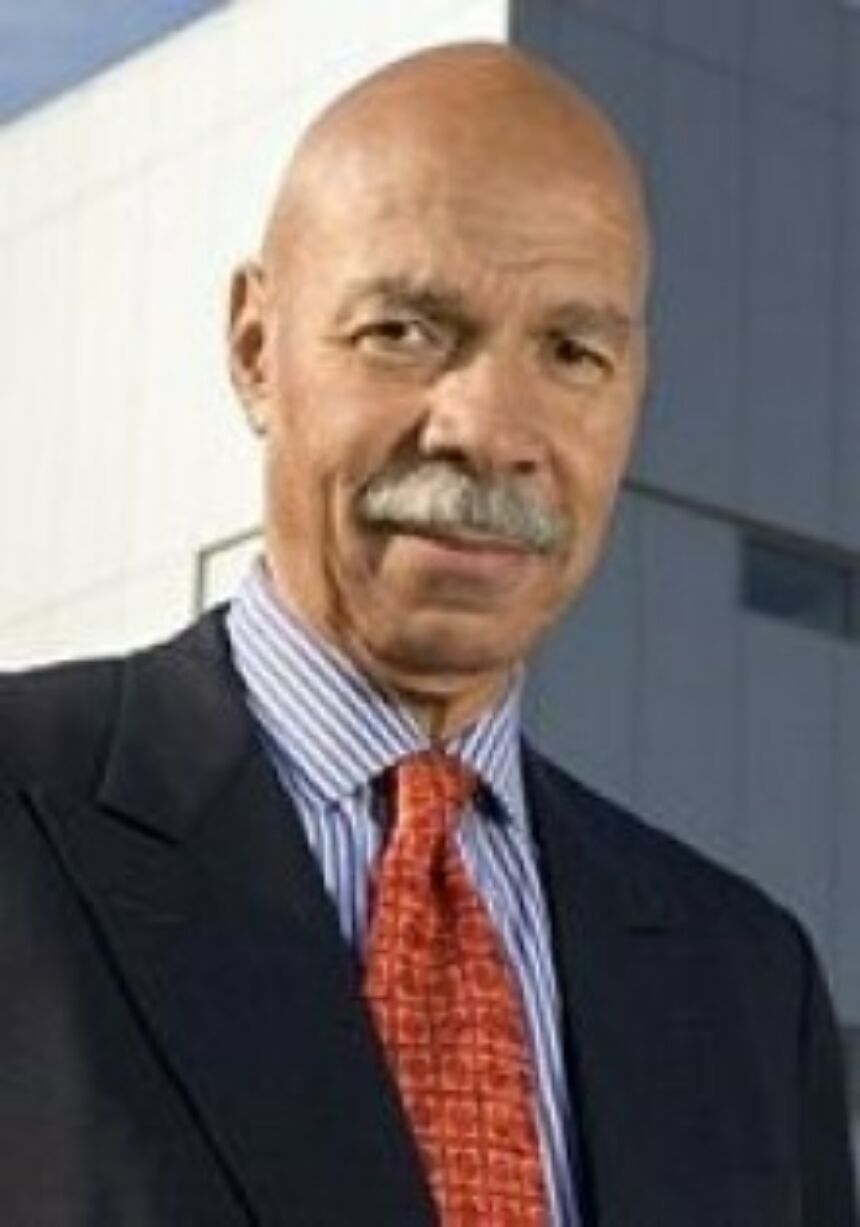February 02, 2015
Drone strikes: legal weapon against terror or violation of human rights?

UNIVERSITY PARK, Pa. – The second episode of the television series World on Trial, “Drones and Human Rights,” will premiere at a public screening hosted by Penn State Law on Feb. 12 followed by a discussion and reception with filmmakers and the program's creator and host, acclaimed human rights advocate, author, and Penn State Law professor Randall Robinson. The free event begins at 6 p.m. in the Lewis Katz Building’s Sutliff Auditorium on Penn State’s University Park campus. The public is welcome to attend, and can register online.
Episode two of World on Trial explores whether the use of unmanned drones by the U.S. government to target suspected terrorists is a legal and effective counterterrorism tactic or a violation of the right to life. The U.S. military today trains more drone pilots than fighter pilots. While the drone program has been credited with effectively targeting suspected terrorists, critics have denounced the United States’ use of drones as violating fundamental human rights laws.
Filmed at Penn State Law, the episode puts the U.S. government on trial before a jury of Penn State law and graduate students. Judge James E. Baker of the U.S. Court of Appeals for the Armed Forces, who participated in his personal capacity, presides over the trial, with military and national security experts and human rights scholars serving as witnesses.
Jameel Jaffer, director of the ACLU’s Center for Democracy, and Pardiss Kebriaei of the Center for Constitutional Rights lead the challenge to the U.S. drone program, and Michael W. Lewis, a law professor and expert on the conflict between the U.S. and al-Qaida, defends the U.S. government.
The episode also includes footage of deliberations from juries that watched the trial around the world. The trial was viewed by multinational juries sitting at the University of Strasbourg in France, Peking University School of Transnational Law in China, and the City University of New York.
In his opening statement for the prosecution, Jaffer presents research that estimates that about 4,000 people have been killed by U.S. drone strikes. Of that, he says, 1,000 have been civilians, and of those, 300 have been children. Meanwhile, the United States has provided no official statistics on drone strikes, he tells the jury.
However, in his opening statement for the defense, Lewis argues that unmanned drones are the most discriminating weapon system that has ever been created by mankind. Drones are not a problem, he says, rather, they are a solution to the problem of civilian casualties in war time, particularly in war time where the enemy hides among the civilian population.
Following the Feb. 12 screening, the audience will be invited to discuss the trial and cast their own votes to determine whether the U.S. drone program is a legal counterterrorism tactic or a violation of international law.
About World on Trial
World on Trial was conceived of, and is hosted by, Randall Robinson, Distinguished Scholar in Residenceat Penn State Law. The interactive multimedia series presents both sides of sharply contested human rights issues in the context of courtroom trials before a live jury and multinational juries convened at universities around the world. It brings together distinguished judges, renowned attorneys, and witnesses who are experts in their fields to address the complicated legal issues, as well as prominent journalists to provide expanded perspectives and commentary. The project’s purpose is to elevate public awareness of important human rights issues and the international treaties that govern state conduct with respect to human rights.
Professor Robinson notes: “If these human rights laws are going to work as we would hope that they would work -- as so many have worked so hard to make them work -- they have to be brought, in the form of education and information to the entire world community.”
The first episode of World on Trial, broadcast on U.S. public television networks in 2011 and 2012, examined the legality of France’s 2004 “headscarf law,” which forbids the wearing of conspicuous religious garb in primary and secondary public schools. It featured the Honorable Cherie Booth-Blair of the U.K. as the judge. Professor Charles Ogletree of Harvard Law School and the Honorable Remy Schwartz of the French Conseil d’Etat served as lead counsel for each side, and witnesses included Professor John Bowen of Washington University, WidneyBrown of Amnesty International, London, Hanifa Cherifi, a leading sociologist and official of the French Ministry of Education, among other scholars, human rights advocates, and government officials. Juries around the world deliberated and rendered verdicts on the trial, including at the University of Edinburgh, Sciences Po, Hebrew University, the University of Cape Town, Peking University School of Transnational Law, Yeditepe University, Hong Kong University, and Penn State.
Future episodes of World on Trial will include similarly distinguished participants contesting such issues as Nigeria’s treatment of impoverished indigenous populations in the oil rich Niger Delta; India’s response to child labor practices within certain traditional castes; Israeli eviction and resettlement practices pertaining to homes occupied by Palestinians; Chinese government practices toward Uighurs; Sri Lankan practices toward Tamils; and similar issues of significance worldwide that raise sharply contested questions of a nation’s compliance with international human rights treaties.
This episode is produced by an Emmy Award-winning team from storyshop llc, with support from Penn State Law, the Penn State School of International Affairs, and Penn State Public Media.
For more information, visit worldontrial.psu.edu.
